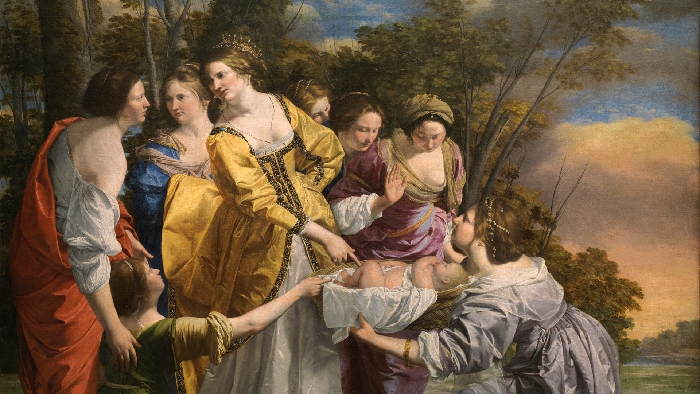
The Birth and Deliverance of Moses
“And when the child was grown, she brought him unto Pharaoh’s daughter: and he was her son.
And she called his name Moses, saying, Because I brought him up out of the water.”(Exodus 2:10)
Throughout history, God has chosen Israel as His people and has faithfully remained by their side through every challenge. His commitment to them is unwavering, as seen in the remarkable story of Moses. In the face of difficulties, God never fails Israel. His faithfulness is a testament to His character and His dedication to keeping the covenant He made with His chosen people. The birth and growth of Moses exemplify God’s unwavering commitment to His promises. It is through this powerful narrative that we see how God’s goodness prevails, even in the most challenging circumstances. As we navigate our journey with Him, we can find solace and assurance in His unchanging nature. Trusting in His promises, we can rest assured that God’s faithfulness will endure, guiding us through every step of the way.
The Birth of Moses
Amram, a man of the tribe of Levi, entered into a conjugal relationship with Jochebed, a Levi woman. Their family, which included their children Miriam and Aaron, played a crucial role in the Hebrew people’s destiny. Despite not being explicitly named in the text, Amram’s story highlights the sacredness of familial bonds and invites us to appreciate our own ancestral heritage. Through their unwavering commitment and faith, Amram and Jochebed laid a strong foundation for future generations, leaving a lasting legacy of profound influence.
Ordering the slaughter of newborn boys===
The mention of Moses’ birth, while omitting the births of his siblings Aaron and Miriam, hints at his significant role in future events. During that period, the Egyptian ruler Thutmose I (1539-1514 BC) issued a decree to kill male Hebrew infants, highlighting the oppressive circumstances surrounding Moses’ early life.
Protecting a son
In a display of extraordinary maternal love and faith, Jochebed, Moses’ mother, recognized her son’s exceptional nature and took great measures to protect him from the Pharaoh’s decree. She hid him for three months before preparing a papyrus chest, symbolizing the ark that saved Noah’s family, and placing Moses in it. The narrative emphasizes that this baby would later become the leader who would guide the Israelites out of Egypt, underscoring the significance of Jochebed’s actions and her belief in God’s plan.
An incredible rescue
In a moment of desperation, Moses’ parents entrusted their son’s fate to God and placed him in a box, which miraculously ended up in the hands of Princess Hatshepsut (B.C. 1504-1483), the daughter of Pharaoh. This fortuitous encounter occurred because God orchestrated events, including the passing of power through marriage, leading to the princess defying her father’s order to kill Hebrew male infants and instead raising Moses as her own. Through divine intervention and careful preparation, God ensured that the right person was there at the right time to fulfill His plan during the reigns of Amenhotep I (B.C. 1560-1539) and Thutmose I (B.C. 1539-1514) in the 18th Dynasty of Egypt, ultimately shaping the course of Moses’ life.
Reflection
It is remarkable to see how God can transform even the wicked intentions of Pharaoh into a means for accomplishing His greater purpose. Despite Pharaoh’s cruel policy of exterminating the Israelite children, God orchestrated a remarkable plan. He allowed Pharaoh to unknowingly raise a child in his own palace who would later become the leader destined to liberate the Israelites from slavery in Egypt. This demonstrates that God has the power to utilize the evil schemes of humans for His ultimate good. It reminds us of our unwavering trust in God, for His plans are always fulfilled, despite human frailty and weakness. In Him alone we find true trust and reliance, as He is the sole source of salvation and the giver of life (1 Timothy 4:10).
